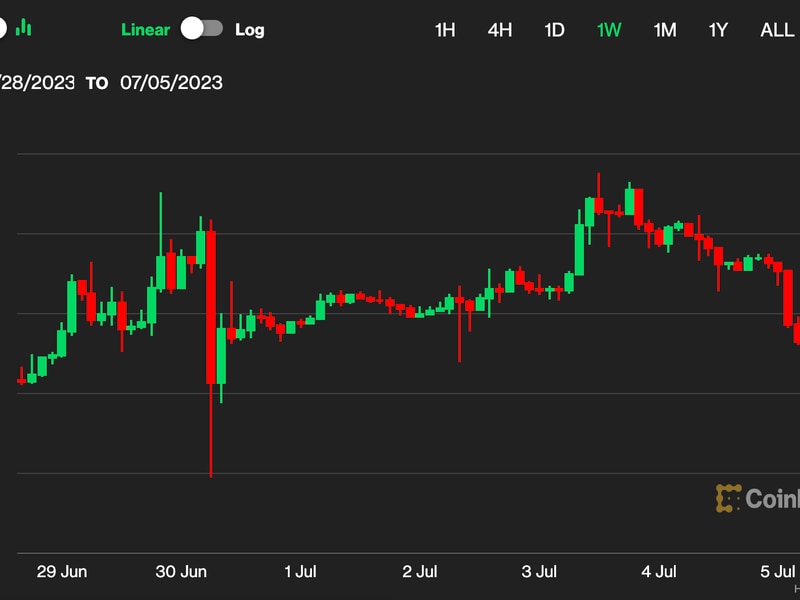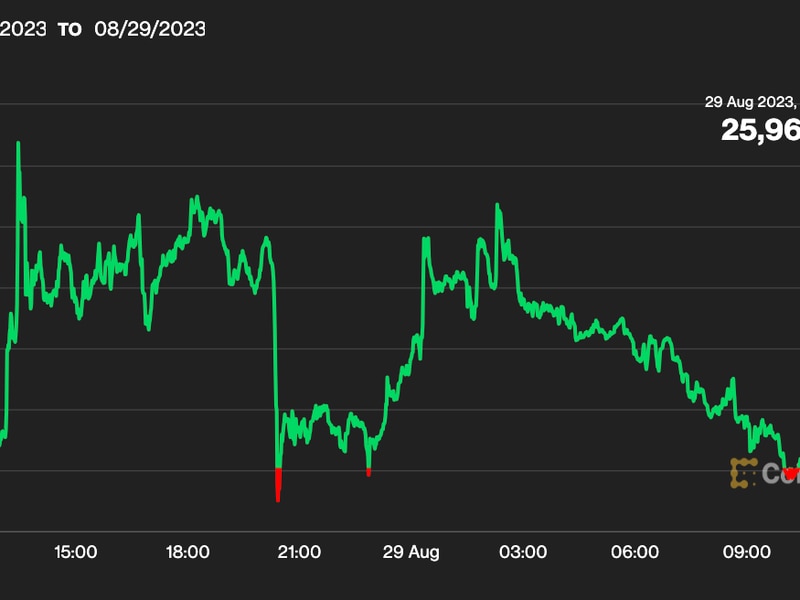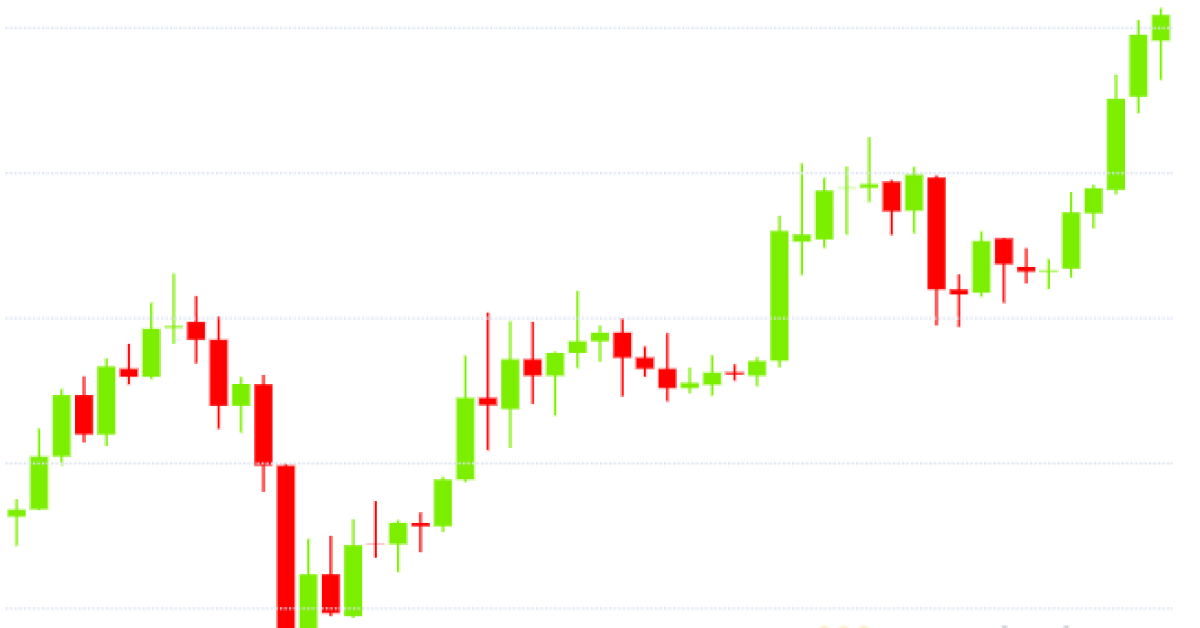Ex-Alameda Research CEO Caroline Ellison Sentenced to Two Years in Prison for Her Role in FTX Fraud
NEW YORK — Former Alameda Research CEO Caroline Ellison was sentenced to 24 months – or two years – in prison by a federal judge on Tuesday.
The judge said Ellison, 29, who will also have to forfeit about $11 billion, could serve the sentence at a minimum-security facility near Boston, where her family lives. She will also spend three years on supervised release after she serves her term.
Despite the sentence, Judge Lewis A. Kaplan seemed sympathetic to Ellison, who was a key witness in the government’s trial against Sam Bankman-Fried – the founder and CEO of FTX and a former boyfriend of Ellison’s. “You were vulnerable and you were exploited,” he said minutes before announcing his sentence. “You are genuinely remorseful.”
Kaplan noted Ellison’s cooperation, saying “I’ve seen a lot of cooperators in 30 years here, I’ve never seen one quite like Miss Ellison.”
Nevertheless, FTX was one of the greatest financial frauds ever perpetrated in this country, he noted, and cooperation wasn’t enough to spare Ellison a spot in prison. “In a case this serious, to be literally a ‘get out of jail free’ card is not something I can see my way through to,” Kaplan said, before asking Ellison to rise and receive her sentence of 24 months in prison. Because the crime is federal, Ellison will serve at least 75% of her sentence before being eligible for parole.
Ellison testified against Bankman-Fried during his criminal trial last year, alleging he tried to bribe foreign officials and deliberately shared misleading financial data with lenders.
Her testimony was a “cornerstone” in Bankman-Fried’s conviction, prosecutors said in a sentencing memorandum ahead of Tuesday’s hearing. Bankman-Fried was convicted on all seven counts of fraud and conspiracy he faced, and was sentenced to 25 years in prison earlier this year. He’s now appealing the conviction. Assistant U.S. Attorney Danielle Sassoon, one of the prosecutors who spearheaded Bankman-Fried’s trial, echoed this memo during remarks on Tuesday before the judge.
Unlike Bankman-Fried, Ellison was proactively cooperative with the Department of Justice, she said. It was not the first time she – or other speakers Tuesday – contrasted the pair. Where Bankman-Fried did not demonstrate remorse, Ellison did, and while Bankman-Fried’s sentence was intended to deter him and others from committing any further crimes, Ellison’s sentence should reflect her cooperation.
Ellison’s own attorneys argued ahead of the hearing that she provided “extraordinary cooperation” and did not pose any recidivism risk. Both her attorneys and the probation department recommended that she be sentenced to time served, plus three years of probation.
Ellison’s lawyer, Wilmare Hale Managing Partner Anjan Sahni, told the court that his client had been led astray by Bankman-Fried, who she formerly had a romantic relationship with. In her desire to please Bankman-Fried, Ellison participated in the fraud scheme but after FTX’s collapse, her lawyer said, “she has recovered her moral compass.”
Ellison, who spoke briefly before the sentence was read out, said she wanted to apologize to FTX and Alameda’s former customers, her former colleagues, friends and family.
“The human brain is bad at comprehending big numbers,” she said, her voice wavering. “I can’t even begin to imagine the pain I’ve caused.”
Ellison has approximately 45 days before she is required to surrender herself voluntarily to the Bureau of Prisons to begin serving her sentence.
“If you had told me back in 2018 that I would end up pleading guilty to fraud, I would have told you you were crazy,” Ellison added. “At each stage of the process it became harder and harder to extricate myself…I’m sorry I wasn’t brave.”
UPDATE (Sept. 24, 2024, 20:30 UTC): Adds additional detail.
Disclosure
Please note that our
privacy policy,
terms of use,
cookies,
and
do not sell my personal information
has been updated
.
CoinDesk is an
award-winning
media outlet that covers the cryptocurrency industry. Its journalists abide by a
strict set of editorial policies.
In November 2023
, CoinDesk was acquired
by the Bullish group, owner of
Bullish,
a regulated, digital assets exchange. The Bullish group is majority-owned by
Block.one; both companies have
interests
in a variety of blockchain and digital asset businesses and significant holdings of digital assets, including bitcoin.
CoinDesk operates as an independent subsidiary with an editorial committee to protect journalistic independence. CoinDesk employees, including journalists, may receive options in the Bullish group as part of their compensation.
:format(jpg)/www.coindesk.com/resizer/BETd9o0r2OHtd2vT2ZqY9QPrJps=/arc-photo-coindesk/arc2-prod/public/ODFQHDRZFJG7XNVO7P6PUYMWS4.png)
Nikhilesh De is CoinDesk’s managing editor for global policy and regulation. He owns marginal amounts of bitcoin and ether.
Follow @nikhileshde on Twitter
:format(jpg)/s3.amazonaws.com/arc-authors/coindesk/572b85a4-8cec-4461-a07f-e8426649a469.png)
Cheyenne Ligon is a CoinDesk news reporter with a focus on crypto regulation and policy. She has no significant crypto holdings.
Follow @cheyenneligon on Twitter
:format(jpg)/s3.amazonaws.com/arc-authors/coindesk/6d05e6ca-ca9b-44d0-97e6-b6bdceee3d6f.png)
Helene is a New York-based reporter covering Wall Street, the rise of the spot bitcoin ETFs and crypto exchanges. She is also the co-host of CoinDesk’s Markets Daily show. Helene is a graduate of New York University’s business and economic reporting program and has appeared on CBS News, YahooFinance and Nasdaq TradeTalks. She holds BTC and ETH.
Follow @HeleneBraunn on Twitter









